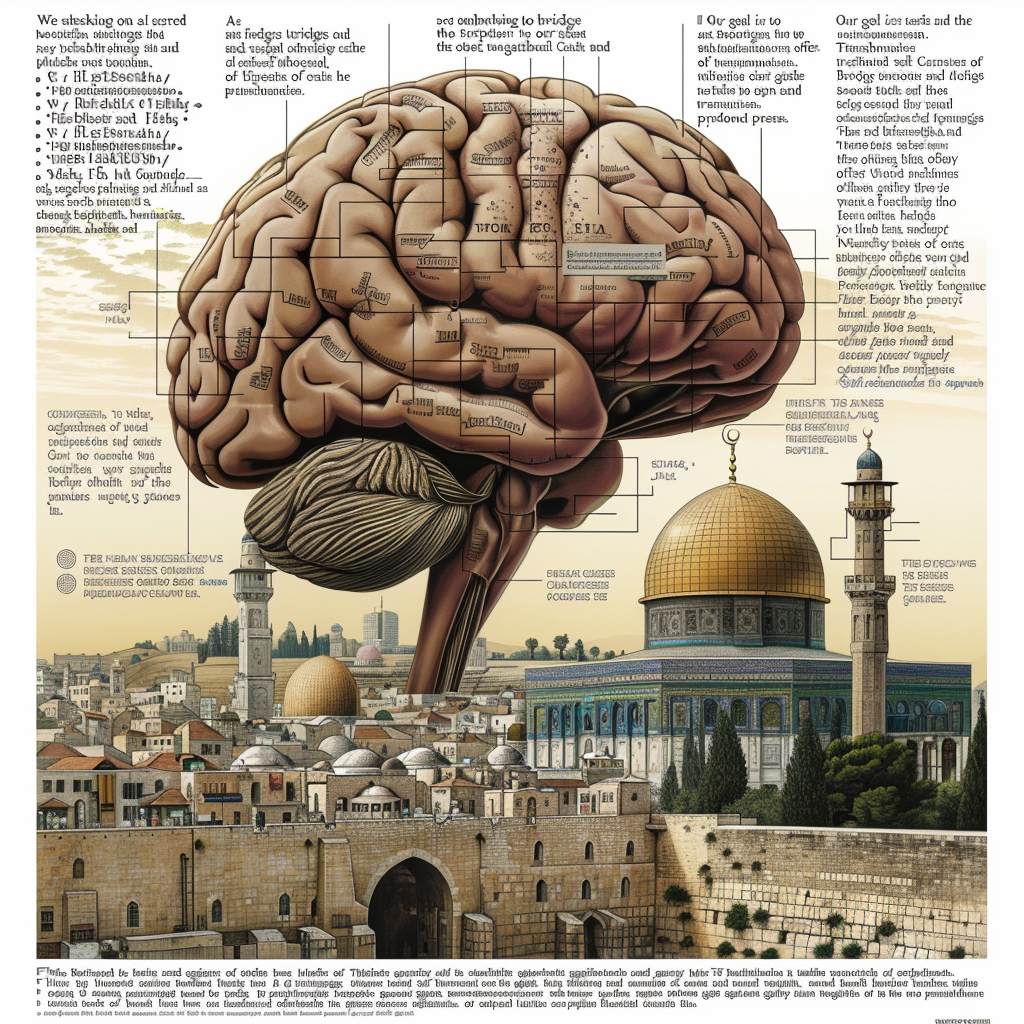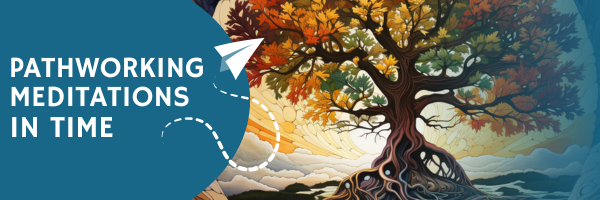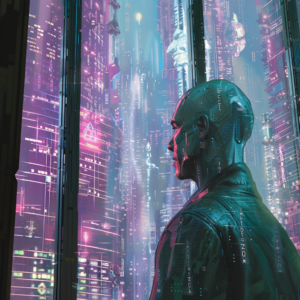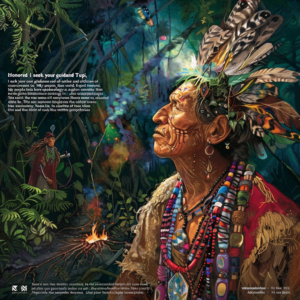
In the heart of the ancient city of Jerusalem, where history and spirituality intertwined, a new era of theological exploration was unfolding. The advent of transhumanism challenged traditional religious doctrines, prompting scholars and theologians to reexamine sacred texts through the lens of technological advancement. This intellectual revolution was centered at the newly established Institute for Neural Theology, where ancient wisdom met cutting-edge innovation.
Dr. Miriam Elbaz, a renowned biblical scholar, and Father Gabriel O’Connor, a Jesuit priest with a background in AI ethics, stood at the forefront of this movement. Together, they led a diverse team of theologians, scientists, and philosophers in a quest to reinterpret sacred texts for a transhumanist society.
One evening, as the sun set over the city’s golden domes and winding streets, Miriam and Gabriel gathered their team in the institute’s grand library. Stacks of ancient manuscripts and holographic displays filled the room, symbolizing the intersection of the past and future.
“We are embarking on a journey to bridge the sacred and the technological,” Miriam began, her voice resonating with purpose. “Our goal is to find new meanings in our scriptures that can guide individuals as they navigate transhumanism’s ethical and spiritual challenges.”
Gabriel nodded, adding, “Transhumanism offers profound enhancements to the human experience but raises questions about our identity, morality, and purpose. Our scriptures have always provided moral guidance, and we must ensure they remain relevant.”
Their first task was to reinterpret the Genesis creation narrative. The story of humanity’s origin, created in God’s image, had profound implications for a society where people could enhance themselves beyond natural limits. The team debated passionately, each perspective adding depth to their understanding.
“Could transhuman enhancements be seen as a continuation of the divine creative process?” suggested Dr. Rashid Karim, an Islamic scholar. “If we co-create with God, enhancing ourselves could be viewed as fulfilling our potential.”
Father Gabriel considered this. “But we must also acknowledge the potential for hubris. The Tower of Babel narrative warns against humanity’s attempt to usurp divine authority. We must balance our pursuit of enhancement with humility and respect for the natural order.”
Miriam proposed a synthesis. “Perhaps our enhancements should be seen as tools for stewardship. Just as Adam and Eve were tasked with caring for Eden, we can use our enhancements to better care for our world and each other.”
The reinterpretation of Genesis was only the beginning. The team turned to other texts, exploring themes of resurrection, eternal life, and the nature of the soul. In the New Testament, resurrection took on new dimensions in a world where life extension and consciousness transfer were possible.
“Jesus’ resurrection was a transformative event, offering hope and renewal,” said Dr. Rebecca Liu, a theologian specializing in early Christian writings. “Could the resurrection symbolize the ultimate transhumanist transformation, where our enhanced bodies and minds reflect a new creation?”
As they delved more profound, the scholars also grappled with the ethical implications of transhumanism. With its timeless wisdom, the Book of Proverbs became a focal point for discussions on morality and virtue in a technologically advanced society.
“The pursuit of wisdom is a central theme in Proverbs,” noted Professor Samuel Cohen, a philosopher. “Transhumanism provides us unprecedented access to knowledge and capabilities, but wisdom involves more than just intellect. It requires ethical discernment and compassion.”
Miriam nodded in agreement. “We must emphasize that true enhancement is not just physical or cognitive but also moral and spiritual. Our advancements should align with virtues like justice, kindness, and humility.”
Outside the institute, the world was watching. Religious leaders, policymakers, and the public followed the team’s work with curiosity and concern. The reinterpretation of sacred texts for a transhumanist age sparked debates and inspired conversations across the globe.
One evening, Miriam and Gabriel received an invitation to speak at the United Nations. The General Assembly Hall was filled with representatives from diverse cultures and faiths, all eager to hear how ancient scriptures could offer guidance in the face of rapid technological change.
Miriam began, “Our sacred texts have guided humanity for millennia, providing moral and spiritual foundations. As we enter the age of transhumanism, these texts remain vital. They remind us of our shared humanity, responsibilities, and the values that transcend technological advancements.”
Gabriel continued, “Transhumanism challenges us to rethink our identity and purpose. Our reinterpretation of sacred texts reveals that our greatest enhancements are not just those of the body and mind but of the spirit. We must strive for wisdom, compassion, and humility as we navigate this new era.”
Their message resonated, sparking a global movement to integrate ancient wisdom with modern innovation. Faith communities began to explore transhumanism within their traditions, finding new ways to connect with their sacred texts and adapt their teachings.
The Institute for Neural Theology became a beacon of hope and understanding in Jerusalem. Scholars worldwide joined the effort, contributing to a growing body of work that bridged the sacred and the technological.
As the years passed, the reinterpretation of sacred texts continued to evolve, guided by the same principles that had always defined humanity’s quest for meaning: a search for truth, a commitment to justice, and a deep reverence for the mystery of existence.
Miriam and Gabriel’s legacy was one of integration and enlightenment. It showed that even in the age of transhumanism, the ancient scriptures could light the path forward. Their work reminded the world that technology, at its best, could enhance not just our capabilities but our capacity for wisdom, compassion, and spiritual growth.
No tags for this post.



